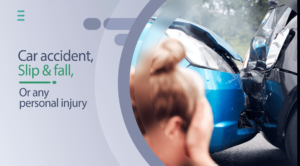If you’ve been in an accident, you may be wondering who’s at fault. It’s not always clear cut. In some cases, it might not even be legal to know who is financially responsible for your injuries or damages. But there are ways to find out and get compensation if needed!
How do I legally prove who was at fault for an accident?
In a car accident case, it is important to have proof of who’s at fault. This can be done in a number of ways:
You can show that the other driver was speeding or driving recklessly. This can be done by using dash cam footage from the time of your accident and showing it to a judge during your case. Dash cam footage will also help you prove negligence on their part if they were speeding or driving erratically before the collision occurred.
Can I get compensation for my injuries if the accident might have been partly my fault?
Yes, you can recover some compensation for your injuries if the accident might have been partly your fault. However, if you were more than 50% at fault for the accident, then there is no way for you to recover any damages.
Can I get compensation for my injuries if my physical limitations made the accident more likely or made my injuries worse?
If you have a pre-existing disability and the accident made your disability worse, you may be able to get compensation for your injuries. The insurance company is required to look at all things in the same way. For example, if someone has had a stroke or heart attack and becomes disabled as a result of that incident, they can still qualify for compensation even though their physical limitations were already present before the crash occurred (although it’s important to note that some types of personal injury claims might not apply).
What is negligence?
Negligence is a legal term that means the person who caused the injury was careless. It’s the most common cause of car accident injuries, workplace injuries and medical malpractice, as per personal injury lawyer in Scarborough.
The definition of negligence can be tricky to understand because it involves both intent and responsibility—the same thing that makes someone have to pay for an accident is also what makes them liable for paying damages after an accident occurs. For example, if you hit someone with your car but didn’t intend to hurt them (or even knew they were there), then you’re not guilty of negligence; however, if you were trying to run over their dog (which was crossing the street by itself), then yes: You would be considered negligent!
If someone else causes damage to your property or harm against yourself or another person under certain circumstances (like being drunk) then they may be held accountable through civil court. Only in rare cases will this happen immediately following an automobile accident/personal injury case where liability has already been established beforehand by law enforcement officials investigating such instances.




